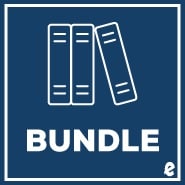An Introductory Exploration of the History of the World
The World’s History encourages readers to explore the history of the world and the significance of this unique study. The past is not simply a list of events, rather the records of historic interpretations of those events. Because interpretations differ from historian to historian, the study of history becomes a pool of various narrations told from different perspectives. The World’s History celebrates these differentiating values offering readers a rich, comprehensive, and challenging introduction the the study of world history and the methods and key interpretations of its historians.
The World’s History: Volume 1 covers Parts One through Five(chapters 1-13). The parts move progressively along a timeline from emergence of early humans to the present day encouraging students to analyze historical events and develop a grasp of the chronology of human development. Readers will gain an appreciation of the national and cultural origins of all their diverse fellow citizens.
MyHistoryLab is an integral part of the Spodek program. Key learning applications include, the World History Video Series, MyHistoryLibrary, and the all new Writing Space.
Teaching and Learning Experience
This program will provide a better teaching and learning experience- for you and your students. It:
- Personalized Learning with MyHistoryLab: The new MyHistoryLab delivers proven results in helping students succeed, and provides engaging experiences that personalize learning.
- Emphasized Critical Thinking: Learning tools throughout the text help students to focus their learning on key material and becomes more critical thinkers. These features include: Learning Objectives, Key Terms, Turning Point Questions and chapter-ending What Difference Does it Make? discussions.
- Includes and Engaging Pedagogically-Driven Design: A new, cleaner design of box features and color type offers a more visually pleasing experience for readers. An eight part division of the material allows readers to master on a specific unit before progressing to the next.
- Provides Primary Source Documents: Readers will gain primary knowledge of historical events though Sources Boxes and Suggested Readings in each chapter.








